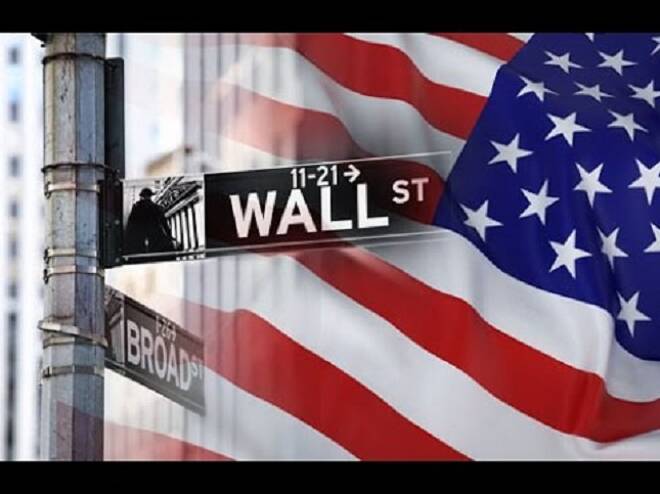Advertisement
Advertisement
US Stocks Falter Amid Concerns Biden Stimulus Plan Would Lead to Higher Interest Rates, Corporate Taxes
By:
There’s a chance that markets will have to pay for this in the form or sharply higher interest rates or tax hikes that could cap equity valuations.
Wall Street’s major stock indexes finished lower on Friday. Gains were capped as investors assessed the impact of President-elect Joe Biden’s $1.9 trillion stimulus plan with some suggesting higher corporate taxes would be necessary to pay for it. Also weighing on prices was a drop in U.S. big bank shares after their reports kicked off earnings season and a sharp break in energy due to the announcement of a regulatory probe into Exxon Mobil Corp.
In the cash market on Friday, the benchmark S&P 500 Index settled at 3768.25, down 27.29 or -0.81%. The blue chip Dow Jones Industrial Average finished at 30814.26, down 177.26 or -0.65% and the tech-based NASDAQ Composite closed at 12998.50, down 114.14 or -1.02%.
Biden’s Stimulus Plan Caps Gains, Raises Concerns about Taxes
Biden’s proposal, called the American Rescue Plan, includes increasing the additional federal unemployment payments to $400 per week and extending them through September, direct payments to many Americans of $1,400, and extending the federal moratoriums on evictions and foreclosures through September.
Biden’s coronavirus relief stimulus package may prove a double-edged sword for investors, sustaining optimism for further economic revival while raising worries over how the United States will pay for it all.
Investors didn’t chase the market higher on Friday after Biden announced the package the evening before because it had been widely anticipated by Wall Street and has helped lift the broad S&P 500 Index nearly 3% in the week since Democratic challengers won both of Georgia’s U.S. Senate seats, giving Democrats full control of Congress.
However, that rally has been mirrored by a slide in Treasuries, due in part to expectations that the government will need to fund the spending with more debt issuance and nudging borrowing costs throughout the economy higher.
On the other side, there’s a chance that markets will have to pay for this in the form or sharply higher interest rates or tax hikes that could cap equity valuations.
Bank Stocks Drag S&P Lower
The S&P 500 Banks Index Lost Ground as shares of Wells Fargo & Co, JPMorgan Chase & Co and Citigroup Inc tumbled even though they had posted better-than-expected fourth-quarter profits. The bank sector had rallied sharply in recent days.
JPMorgan Chase on Friday beat analysts’ estimates for fourth-quarter profit on record trading results and a boost from releasing money previously set aside for loan losses.
Wells Fargo released mixed results for the fourth quarter, sending the bank’s stock lower. Earnings per share of 64 cents exceeded Refinitiv’s estimate of 60 cents, but revenue of $17.93 billion fell short of the $18.127 billion forecast
Citigroup posted fourth-quarter results that beat analysts’ estimates for profit as the firm joined rival JPMorgan Chase in releasing reserves for loan losses.
Wells Fargo, down 7.8%, was among the biggest drags on the S&P 500.
Exxon Reportedly Investigated by SEC
Shares of Exxon slipped more than 5% on Friday after The Wall Street Journal reported that the Securities and Exchange Commission opened an investigation that the Securities and Exchange Commission opened an investigation into the oil giant over how it valued a key asset in the oil-rich Permian Basin.
For a look at all of today’s economic events, check out our economic calendar.
About the Author
James Hyerczykauthor
James Hyerczyk is a U.S. based seasoned technical analyst and educator with over 40 years of experience in market analysis and trading, specializing in chart patterns and price movement. He is the author of two books on technical analysis and has a background in both futures and stock markets.
Advertisement
